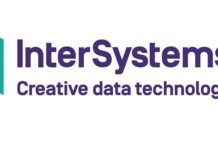The International Serious Adverse Events Consortium (SAEC) announced that Cerner Corporation will collaborate with this novel, international research consortium, which is working to identify genetic markers that may help predict which individuals are at risk for a range of serious drug-related adverse events (SAEs). Researchers collaborating with the SAEC will use Cerner Discovere-, Cerner’s web-based research platform, to gather data for studies that focus on two SAEs: liver injury and hypersensitivity reactions.
Founded in the fall of 2007, the SAEC is a global partnership between leading pharmaceutical companies, the U.S. Food and Drug Administration and academic institutions from around the world with the goal to identify and confirm genetic markers that may help predict which patients are at risk for drug-related SAEs. Widely-used medications, that have been proven to be safe and effective in the vast majority of the population, can cause serious side effects in a small fraction of the population. Through identifying and ultimately validating genetic markers associated with SAEs, the Consortium hopes to improve drug safety, drug development effectiveness and enable personalized patient care; thereby reducing the significant patient and economic costs caused by drug-related SAEs.
At international clinical sites participating in the studies, patients who have experienced Drug-induced Liver Injury (DILI) or Hypersensitivity Reactions (HS) will be given the opportunity to participate in this ground-breaking research. With the patient’s consent, site researchers will obtain DNA samples and document medical history information via the Discovere research platform’s investigator portal. SAEC researchers will compare the genetic and clinical data from all participants to identify genetic mutations and better understand the role of genetic variation in the development of drug-related SAEs.
"Our collaboration with the SAEC reflects Cerner’s commitment to improving research processes and advancing medical science," said Dick Flanigan senior vice president of Cerner Life Sciences. "Additionally, through Cerner Research Network we will offer our clients the opportunity to take part in this landmark collaboration.
The SAEC has established its information technology infrastructure, located at its data analysis and coordinating center at Columbia University, to provide the research community with free and unencumbered access to study data. Results generated from these initial genetic association studies will be available to all qualified researchers for future study and validation.
"Our efforts to date with DILI and Serious Skin Rash have leveraged existing academic networks recruiting research subjects across a limited number of hospitals," said Arthur L. Holden, chairman of the SAEC. "We plan to open up these research studies to additional clinical sites to increase the breadth and diversity of patients who will have the opportunity to contribute to this vital research effort."
























